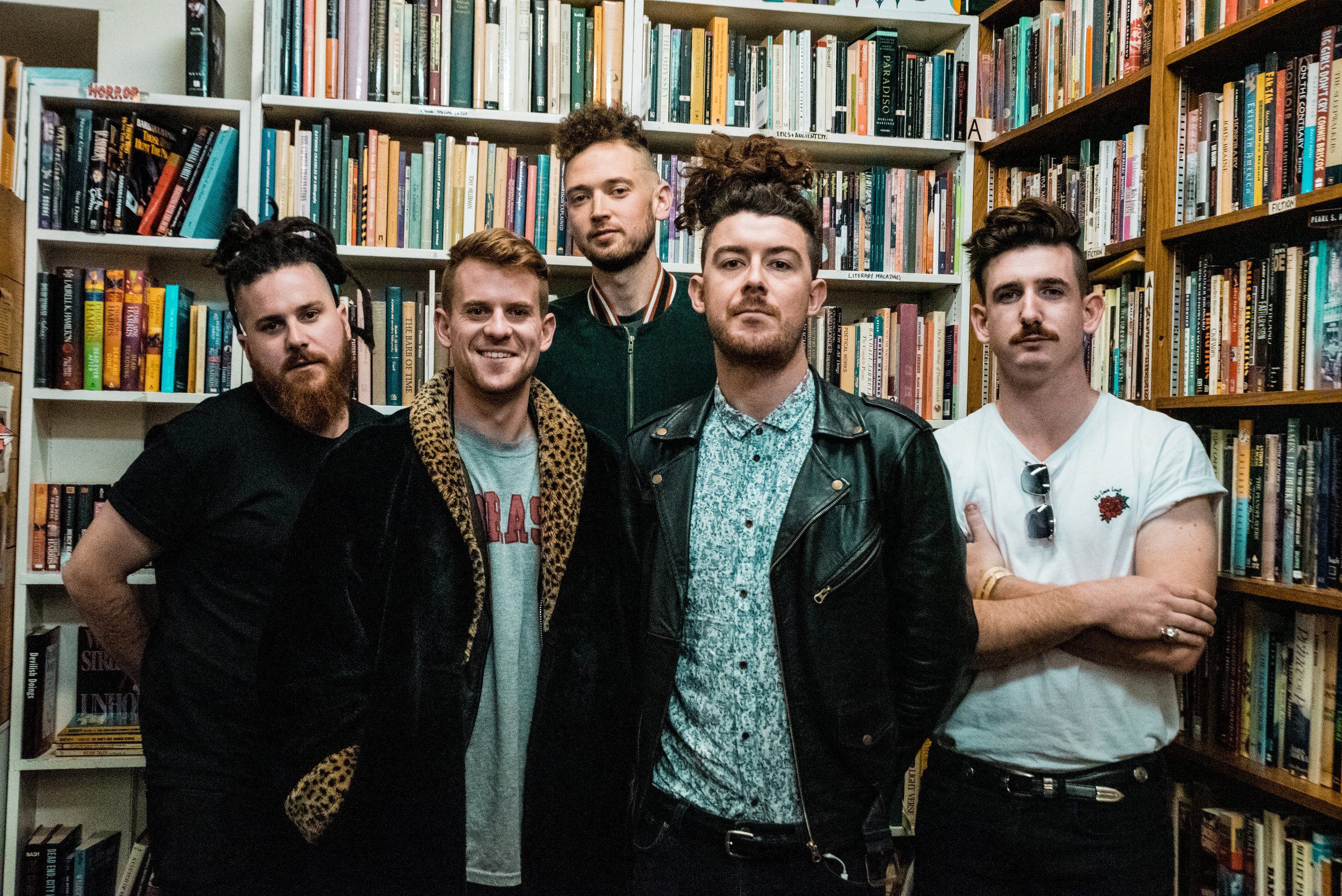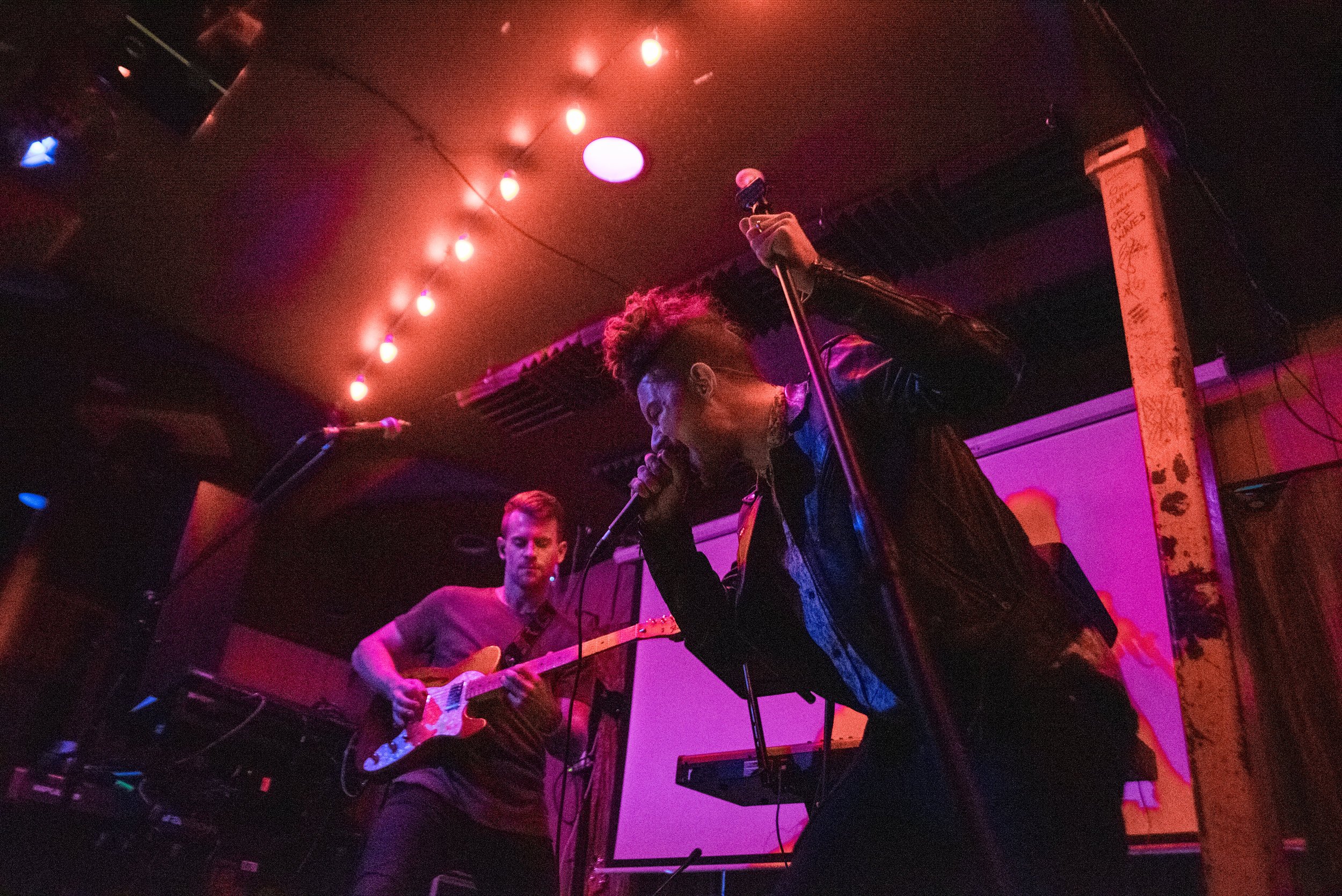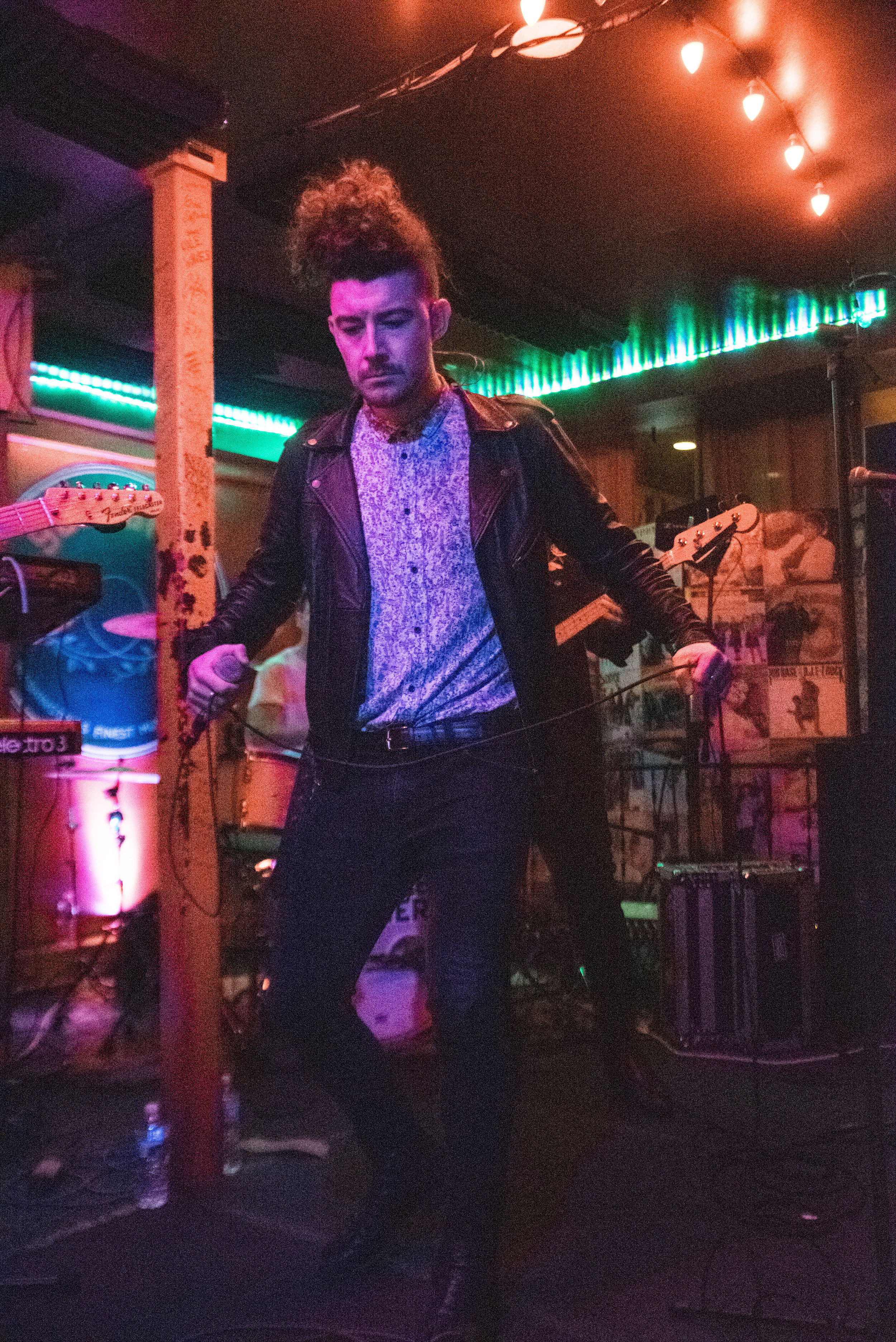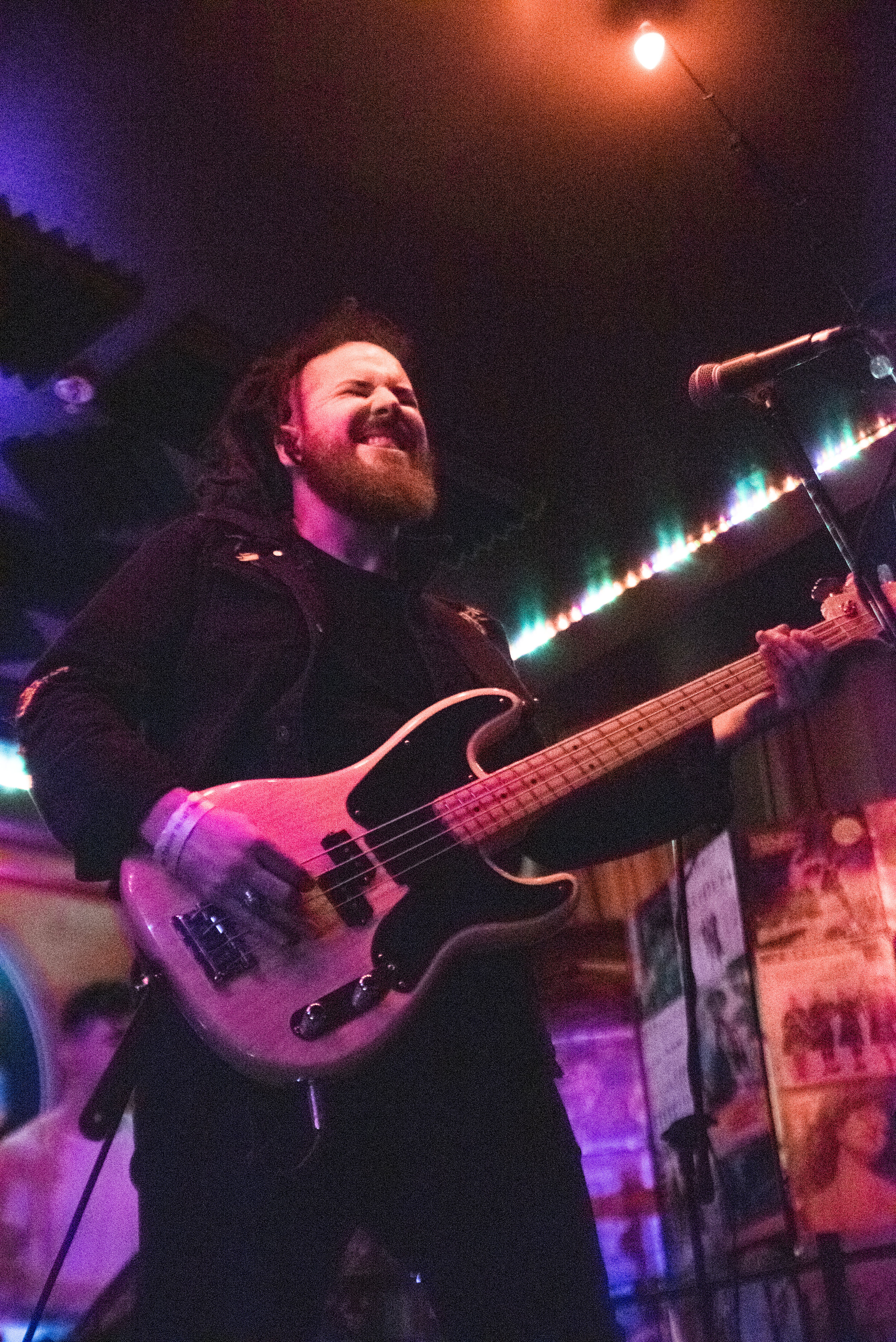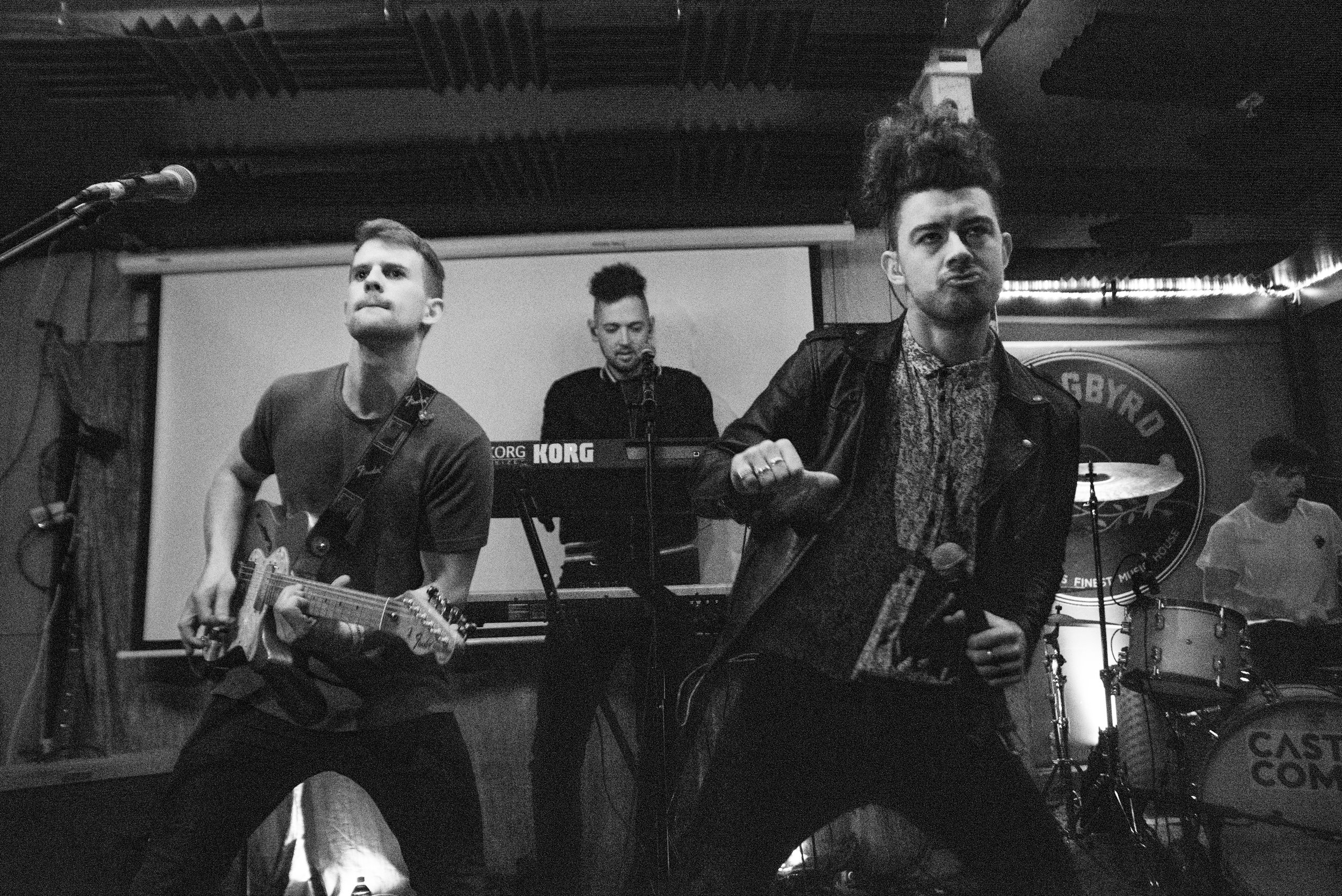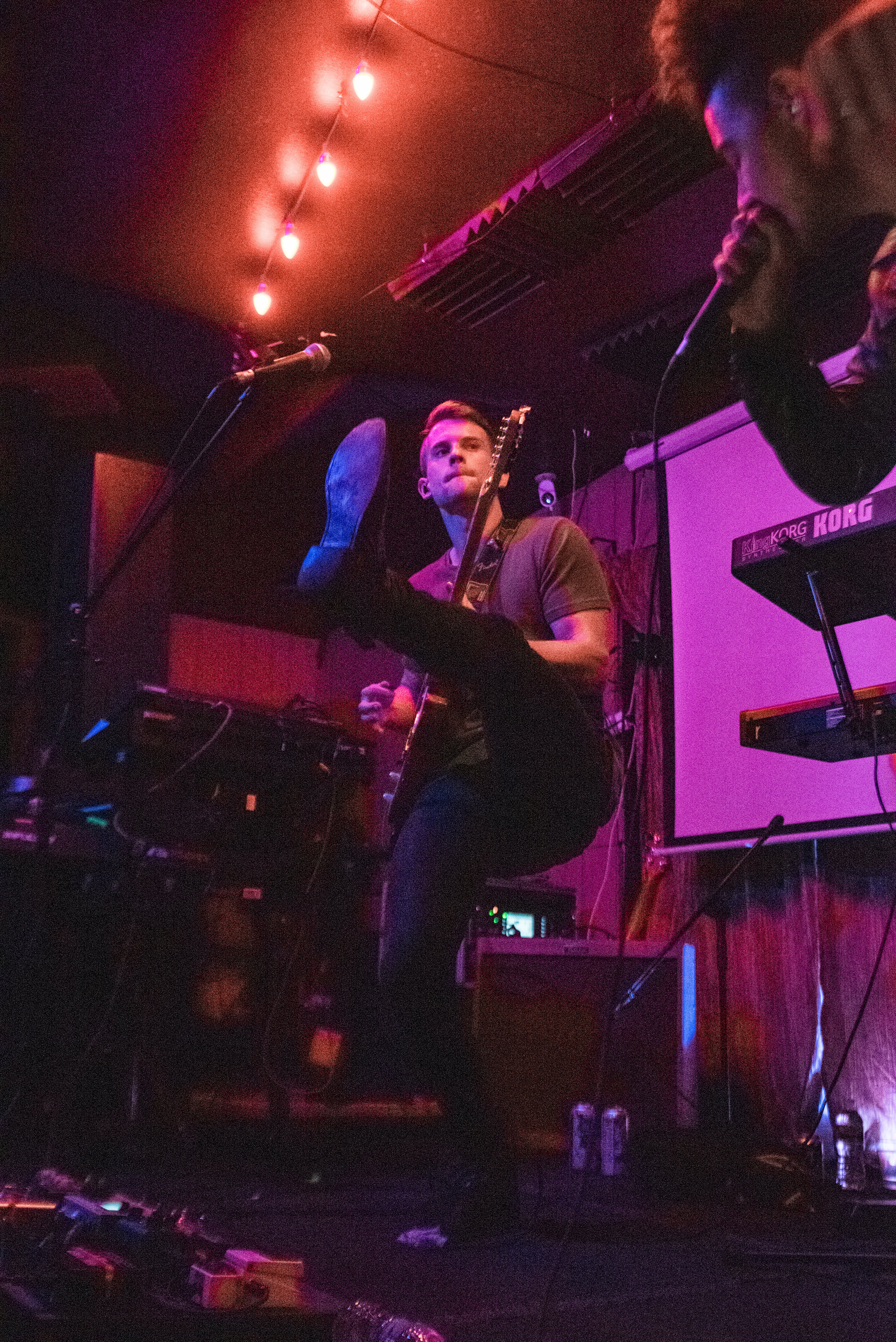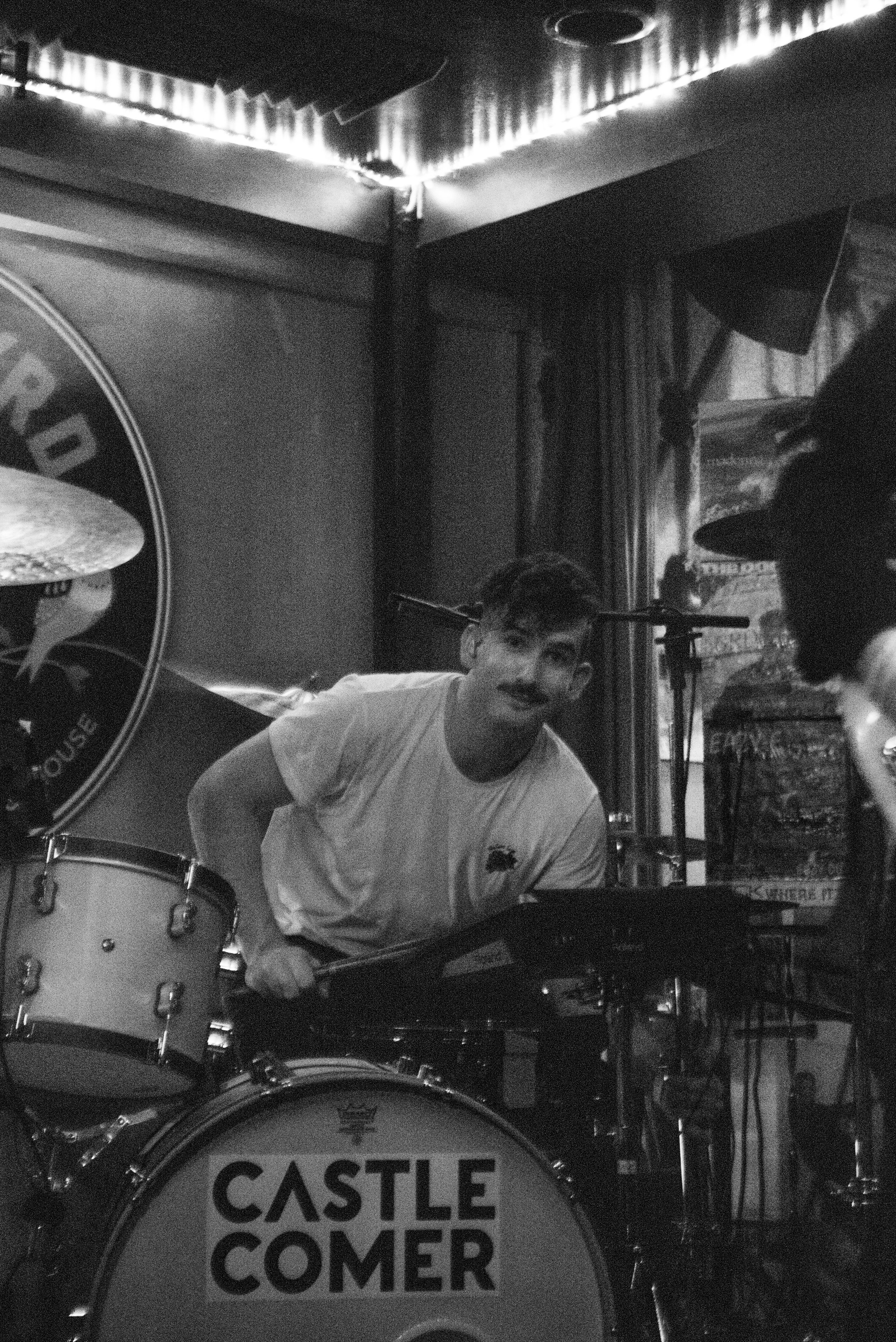Interview: Castlecomer
Castlecomer is a dancey jam-pop band from Sydney, Australia. Though they recently made the move to LA in an effort to grow their American audience. To say Castlecomer is as close as family is accurate because they are, for the most part —four out of five members are related. And it was apparent throughout our conversation how comfortably candid they are with each other. Their playfulness with each other can also be heard in their debut album, “Castlecomer,” which came out in mid-October of this year. We met up with the band during their stop in DC at Songbyrd for the Alt Nation Tour. Get ready to be impressed, have a laugh and get to know Castlecomer below.
Capitol Sound DC: Since you’re all from Australia and relatively new to the music scene in the US, there’s really not a whole lot of information on you all. I wanted to do a little “get-to-know-you” question so that we can learn a little bit more about each of your personalities. That being said, as you may know the lottery is at 1 billion dollars right now, so if you won, what would you buy?
Joe Neely: It’s too early in the morning for that kind of question.
Bede Kennedy: It’s insane. I think the biggest lottery in Australia was like $100 million.
Tommy Kennedy: But you lose half to tax.
Pat Kennedy: Some of it would definitely go to some charities. Then a water jet pack.
Joe Kennedy: I’d buy us a tour van and a hell of a lot of property.
JN: I’d start a franchise, have a huge chain.
TK: I’d just blow all of it. Spend it all on rent. If I could have a chef living in my house. That’d be awesome. We’re not even scraping the surface with a billion dollars. I don’t dream that big.
BK: It’s a shit load of money, but if I had a billion dollars, I’d set up a college trust for every one of my descendants, so everyone could be educated forever. That would be the first smart thing I do. Then buy a big house or a cruise liner. I would buy LeBron’s house because it’s massive and has everything in it.
That’s actually really interesting that you’d ensure your lineage is educated. Why do you believe education is important? Did you all go to school?
BK: We all went to college. Education is very important. It was just a given we would go. In Australia, it’s very common that as soon as you graduate, you’re ready to go to uni. All of us went straight to uni, finished uni, then did the band. So, the whole time we were at uni, we were failing because we were trying to write songs a stuff. We’ve got degrees.
So you believe you still got value out of going?
BK: Of course!
TK: It’s always good to further educate yourself.
Do you feel like you’re using those lessons now that you’re out of school?
BK: Definitely.
What did you study?
TK: I did a Business Management.
BK: I studied law. Music (Neely). Pat did chemical engineering. Joe did like sports science. Very diverse.
Do you have college debt?
BK: Yeah, if you don’t make enough, the system will pay it off.
TK: Your system is really harsh. At home if you passed away, your family doesn’t have to pay for you vs. here you’re out of luck.
JN: Plus it only costs like $6K a semester vs $100K.
I feel like whenever you go abroad, there are always Australians.
TK: Yeah, always, we like to travel.
Did your parents encourage you to travel or take a gap year before going to school?
BK: A lot of people from our school did gap years, but we’re poor so we didn’t.
JN: Since Australia is so far away from anywhere, when we travel we go for a longer period of time. We also get more holidays. We meet Americans when we’re traveling and they’re only there for a week or a month.
BK: That’s why we haven’t gone home since April. It’s too expensive to go home.
That’s too bad. So, let’s jump into music. You just released your first album and most of it is pretty lighthearted, but “Favourite,” which is about Pat’s parents adopting foster children, is definitely more serious. Have you started thinking about your second album and do you think the direction of your second album will have more serious messages?
BK: That’s an interesting thought. We honestly haven’t even thought about the next album at all, for a minute. The thing is the lyrics kind of come really light. The sound of the songs might already be written, but the lyrics are the last piece. For it to get serious it’s got to be right before we record it. We’re not very serious though.
PK: We do have a mix of lighthearted stuff, but I think if we had 100% all the way of anything, it’d get kind of boring.
JN: We have a lot of fun making music, so a lot of the time the lyrical content is based on that.
Your album came out 2 weeks ago. As you’ve been on tour how has the response been? Are more people singing the songs as you progress through the tour?
BK: I’ve definitely noticed that.
TK: You’ll get some people at the front that know every single word. That’s never happened before, because there’s always songs that we play that we haven’t released in our set. Now everything’s out and it adds a new dynamic to the set.
BK: Last night, in New York, there were a lot of people in the front that were screaming the words. Loved it.
Do you think a lot of your fan base is still in Australia?
BK: We certainly built a strong fan base in Australia and we’re spending this time building it here.
Why did you think it was important to build an American fan base?
BK: There’s just 300-something million people. There’s only 20-million at home and the pubs are running out of room. You could tour this country and then go again. In Australia, you could do a tour every 6 months if you liked. There’s just not as many venues.
PK: Numbers-wise we probably have a lot more American fans just because of the sheer number of people. Proportionally, probably more in Australia.
Do you think the music industry here is different than Australia? Is it more competitive and how do you think you’re going to differentiate yourself from all the other indie pop bands around?
JN: In Australia, it’s a lot more competitive for spots, for space. Whereas here it’s competitive, but there’s a lot more musical space for people, which I think is a fantastic opportunity.
PK: There’s so many opportunities here. In Australia, there’s only one main alternative station that holds a lot of the cards. Where you’re only getting played on one of those there, there are plenty of avenues here. It’s just such a small market.
Do you have a strategy for how to differentiate yourself?
BK: We’re not worried about that. That’s too much. Maybe our label thinks about that, but we just want to write the best songs and have the best performance.
PK: I think it’s less of differentiating ourselves, but we want to make ourselves stand out by just trying to blow people’s heads off.
BK: There’s no gimmick, there’s no “OK GO” thing coming up. I don’t think we’re going to go viral off anything. It’s just going to be consistent, good times.
Do you have any questions that you want me to ask that you have a perfect answer for?
PK: Ask what is our band mascot?
What is your band mascot?
PK: I’m glad you asked, it’s a tiger.
TK: It’s because he just bought this tiger ringer.
Okay, wait why a tiger?
PK: In Australia, we were born into supporting the sports team, the West Tigers. They aren’t very good, but we stuck by them.
We’re here for the underdogs.
PK: We had an after-school soccer team that we started that was called the tigers as well. We’re really unimaginative when it comes to naming our teams.
Have you pet a tiger?
BK: No, I don’t believe in that. When you do that, they’re all drugged. But we’ve seen a really good video of a tiger of it jumping in the air to collect this meat.
*All reenacting*
I do have one last question. Do you (Bede) have a name for your hair bun?
BK: I should get one. Do you name your hair? We call Joe’s the pineapple.
JK: Pat and Tom have the pretty boy haircut. I want to see Bede’s head on a bobble head, with a top knot.
PK: And that’s what we’ll spend a billion dollars on.
This interview has been condensed and edited for clarity.
All photos by Raelena Kniff.

